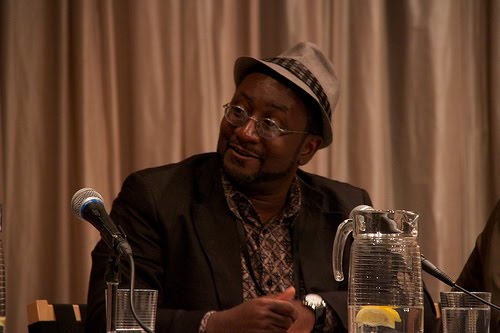While I am working on compiling that list of MFA and Ph. D in Creative Writing programs with my friend Lisa Shaw, I am going to share my response to one of the earliest questions I got on this blog but did not post because I had no idea how it fit in with everything. It is interesting, though.
Q: If you were a tree, what kind of tree would you be?
A: I don’t know how to answer that question. A willow? I am not afraid to weep. An oak? It’s hard to make me weep. I don’t know. Sorry. Thanks for emailing.
Q: It’s me again. Here’s a better question. I came up with it after reading your books “Churchboys and Other Sinners” and “All or Nothing,” especially the latter because P strikes me as an agnostic who will not believe that which he cannot see. Except when it comes to luck. With luck, he possesses faith to dangerous extremes. Here is the question:
If you were living in Europe in 1490, would you believe that the world was flat?
A: I like this question! It had me up all night.
If I were living in Europe in 1490, two years before Columbus journeyed east to discover the “New World,” I would have been taught that the world was flat, and because I am a good student I would have accepted it.
Now, if I were a child raised near the ocean and able to see day after day the approach of ships, the mast rising over the horizon before the actual ship appeared, I would have accepted that the world was flat as the answer to give in school, but I would hold out that maybe this school “fact” was not the actual truth.
On the other hand, I do not think that I would have leapt to the conclusion that the world was round. I would simply “doubt” the facts that I was taught in school and wait for the day when the truth, or a better theory, would eventually come out.
Even today, there are things I accept as “temporary stays against confusion” as Richard Abkarian and Marvin Klotz say in the intro to “Innocence and Experience” in their textbook Literature the Human Experience. For example, I accept the theory of evolution as scientifically sound—for today! I imagine that in the future there will be a better theory to explain how things came to be. I feel the same about the big-bang theory. I feel the same about flat earth in 1490—I accept it until something closer to the truth comes along.
Q: If you were living in Europe in 1493, would you believe the new theory that the world was round?
A: Yes. It would explain away some if the discrepancies that I had encountered with the old flat-earth theory. On the other hand, I would hold that new theory up to the same level of doubt that I had held the flat-earth theory up to. In other words, I believe it, but if something new comes along that makes more sense and can be supported through scientific reasoning and empirical observation and measure, then I will easily cease to believe it.
Q: Do you believe in God?
A: I do not discuss religion in public or with strangers. Sorry.
Q: Does Elwyn believe in God? [Churchboys and Other Sinners]
A: Yes he does. He has no problem with his faith. He is a true believer. His only problem is trying to bring the world in line with what he already believes. And, of course, he struggles to justify his sinful, clandestine affair with Sister Morrisohn so as to reconcile his value system.
Q: If Elwyn were living in 1490, would he believe that the world was flat?
A: Yes. And he would believe it despite the evidence he saw to the contrary.
Q: If Elwyn were living in 1493, would he believe the new theory that the world was round?
A: Not at first. He would accept it after everyone else began to accept it.
Q: Does P believe in God? [All or Nothing]
A: Yes. But he has doubts that he will not speak about publicly, nor do these doubts trouble him to any great degree. P believes that if there is a God, that God will do what God will do, and there is nothing that P, a mere human, can do about it—so there is no need for P to worry about it. P believes that religion, for the most part, is designed so that a few disingenuous people can distract you by getting you to start worrying about things that you really have no control over—death, life in the hereafter, invisible spirits. On the other hand, P believes that some sentient being or beings do govern the universe, and that perhaps they can be used from time to time to control “luck.” In fact, when P is down on his luck, he becomes very religious and superstitious. Thus, P is a contradiction.
Q: If P were living in 1490, would he believe that the world was flat?
A: Yes, but he would have doubts about it.
Q: If P were living in 1493, would he believe the new theory that the world was round?
A: Yes, but he would have doubts about it. He would like it better than he had the flat-earth theory, but he would still have his doubts. P accepts nothing without solid evidence.
Q: And yet he believes in luck with no evidence at all.
A: P is a contradiction.
_______________________________
I'd like to hear your responses to the question. Email me at prestonthewriterallen@gmail.com.
Respond to these questions:
1) If you were living in Europe in 1490, would you believe that the world was flat?
2) If you were living in Europe in 1493, would you believe the new theory that the world was round?
Thanks,
Preston

No comments:
Post a Comment